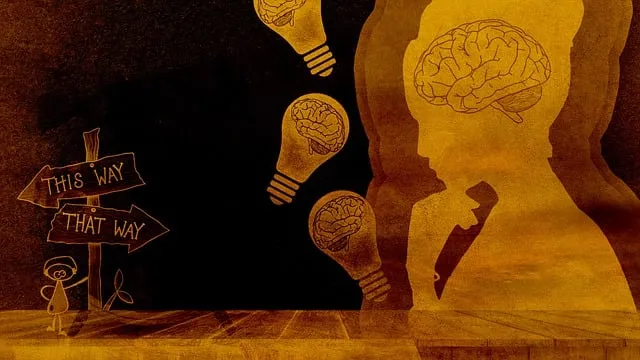Aurora Kaiser Permanente mental health appointment centers prioritize cultural sensitivity as a cornerstone of effective treatment. Recognizing that cultural background deeply impacts mental well-being, they adapt practices beyond language translation to encourage active listening and open dialogue. Incorporating patients' cultural contexts into treatment plans builds trust, improves access to care, and enhances coping skills development, empowering individuals to manage stress through culturally relevant programs. This inclusive approach ensures quality mental healthcare for diverse populations, fostering emotional regulation and personalized healing tailored to individual needs.
In today’s diverse society, cultural sensitivity is paramount in mental healthcare. Understanding cultural diversity shapes effective treatment, as it significantly impacts mental health experiences. This article explores this intricate relationship, delving into various cultural beliefs and practices that influence well-being. We present a case study of the Aurora Kaiser Permanente Mental Health Appointment Center, renowned for its commitment to inclusive care, and offer practical tips for culturally sensitive practices. By embracing diversity, mental healthcare professionals can provide tailored support, fostering positive outcomes for all.
- Understanding Cultural Diversity and Its Impact on Mental Health
- – Exploring the significance of cultural sensitivity in mental healthcare
- – Discussing the various cultural beliefs and practices that influence mental health experiences
Understanding Cultural Diversity and Its Impact on Mental Health

In today’s diverse society, mental healthcare professionals at Aurora Kaiser Permanente mental health appointment centers must embrace cultural sensitivity to provide effective treatment. Understanding and appreciating cultural diversity is essential as it directly impacts an individual’s mental well-being. Each person carries unique experiences and perspectives shaped by their ethnic background, religion, socioeconomic status, and other factors. These influences can significantly affect how they perceive and cope with mental health issues. For instance, a patient from a different cultural background may express distress differently or have distinct beliefs about illness and healing, requiring tailored approaches.
Cultural sensitivity involves recognizing these variations and adapting practices accordingly. It encourages professionals to go beyond language translation services (though those are crucial) and engage in active listening, curiosity, and open dialogue. By incorporating the patient’s cultural context into treatment plans, Aurora Kaiser Permanente mental health appointment centers can foster trust, improve access to care, and enhance coping skills development. This approach not only honors individual identities but also empowers individuals to manage stress effectively through culturally relevant programs, such as those designed by the organization for stress management workshops, ensuring inclusive mental health education.
– Exploring the significance of cultural sensitivity in mental healthcare

In the realm of mental healthcare, cultural sensitivity is a game-changer that fosters effective treatment and emotional healing processes. At Aurora Kaiser Permanente mental health appointment centers, recognizing and respecting diverse cultural backgrounds is not just a practice but an essential component for providing holistic care. Every individual carries unique experiences shaped by their culture, language, and personal history, which significantly influence how they perceive and engage in therapy. A culturally sensitive approach ensures that these nuances are acknowledged, enabling mental health professionals to tailor their methods accordingly.
By incorporating compassion cultivation practices and mental wellness coaching programs development, healthcare providers create a safe and supportive environment. This fosters open communication, encourages clients to share their perspectives, and facilitates a deeper understanding of their emotional challenges. Such an inclusive setting not only enhances the therapeutic process but also empowers individuals from diverse cultural backgrounds to receive the compassionate care they deserve, ultimately contributing to improved mental wellness outcomes at Aurora Kaiser Permanente.
– Discussing the various cultural beliefs and practices that influence mental health experiences

Cultural sensitivity is a cornerstone in mental healthcare, especially at centers like Aurora Kaiser Permanente’s appointment centers, where diverse populations seek support. Understanding that mental health experiences are shaped by various cultural beliefs and practices is vital. For instance, some communities may have unique perspectives on emotional expression, stress management, and seeking help for psychological distress. These differences can significantly impact how individuals present their symptoms and respond to treatment.
At Aurora Kaiser Permanente, the Mental Health Appointment Center provides a safe space for folks from all backgrounds to receive care. The center’s staff is trained in Crisis Intervention Guidance, ensuring they are equipped to navigate cultural nuances during emergency situations. By incorporating culturally sensitive practices, the center fosters emotional regulation and promotes healing tailored to each patient’s unique needs, regardless of their ethnic background or religious beliefs.
Cultural sensitivity is a cornerstone of effective mental healthcare, as recognized by institutions like Aurora Kaiser Permanente’s mental health appointment centers. By understanding and respecting diverse cultural beliefs and practices, mental health professionals can create inclusive environments that foster trust and improve outcomes for all patients. This approach ensures that care aligns with individuals’ unique backgrounds, promoting better access and satisfaction among a truly diverse patient population.





